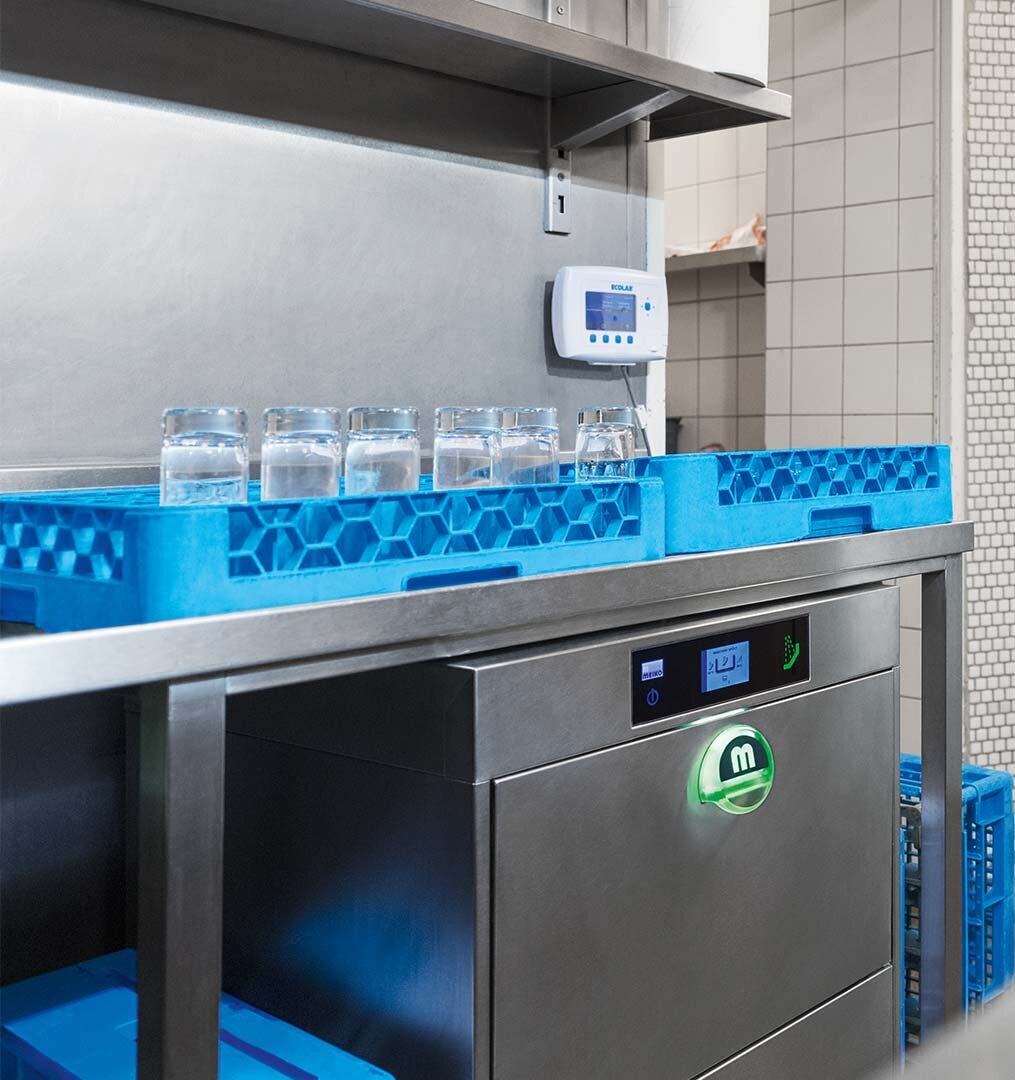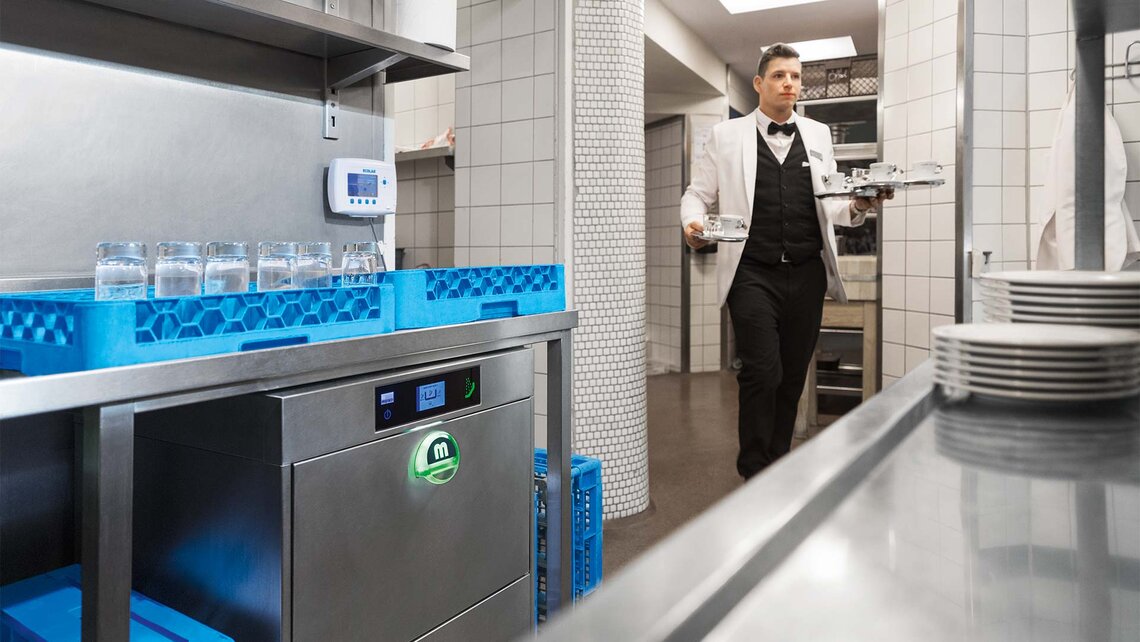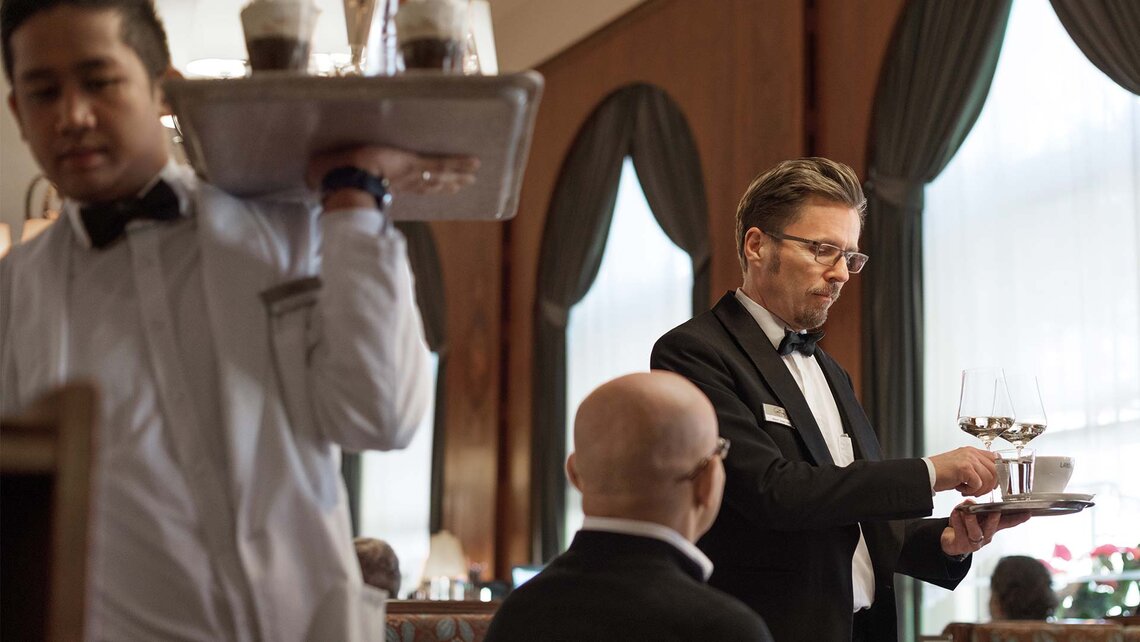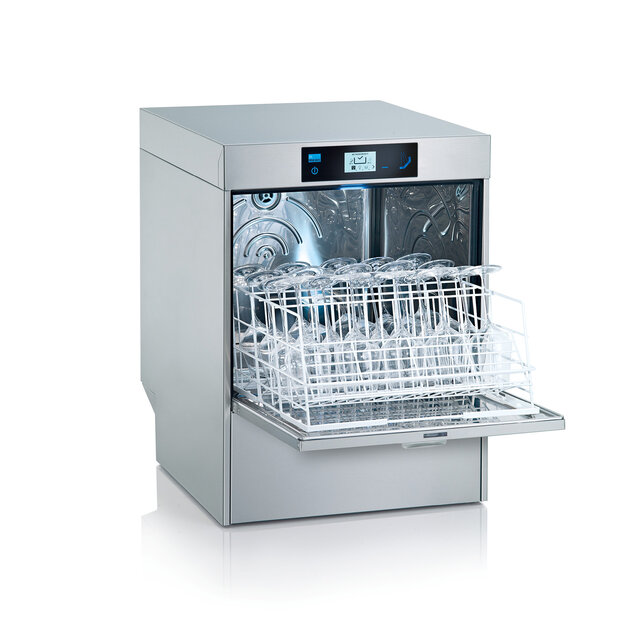A COFFEE HOUSES IS, ‘A PLACE WHERE TIME AND SPACE ARE CONSUMED, BUT ONLY THE COFFEE IS FOUND ON THE BILL.’
That is how UNESCO described Viennese coffee house culture when it was listed as Intangible Cultural Heritage in 2011. There is nowhere that brings together the spirit and history of this metropolis on the Danube quite like its coffee houses. They have been the heart of public life here for centuries.
A coffee house is a microcosm of the city, ‘Drinking coffee in Vienna is not the same as drinking coffee in Paris,’ explains Berndt Querfeld. He knows what he is talking about. He grew up in one of Vienna's most well known coffee houses, making him a part of the culture since he was knee-high to grasshopper. He believes, ‘The Viennese coffee house is its own little world – and when you sit down, you become a part of that world.’ Life moves more slowly here and the atmosphere is steeped in classicism: with marble tables, mirrors, Thonet chairs and vast, historical spaces. Visitors can breathe in the centuries of traditions.
The Viennese coffee house is the forebear of the slow food concept. ‘It follows a different logic to a chain coffee shop and invites you to enjoy it in a different way,’ describes Mr Querfeld. Newspapers rustle, businesspeople discuss and holidaymakers have a chat at the next table. Elsewhere, some guests observe silently, writers are absorbed in their work and epicureans enjoy the moment. You can hear melodic Viennese accents and breathe in the aroma of apple strudel and creamy Viennese Melange coffees – the queen of local speciality coffees.
Hundreds of coffee houses have opened in Vienna alone since the 17th century and they quickly became symbolic of the Austrian capital. Many belong in the history books these days but some have survived the centuries and keep the culture alive. Café Landtmann is a shining example.
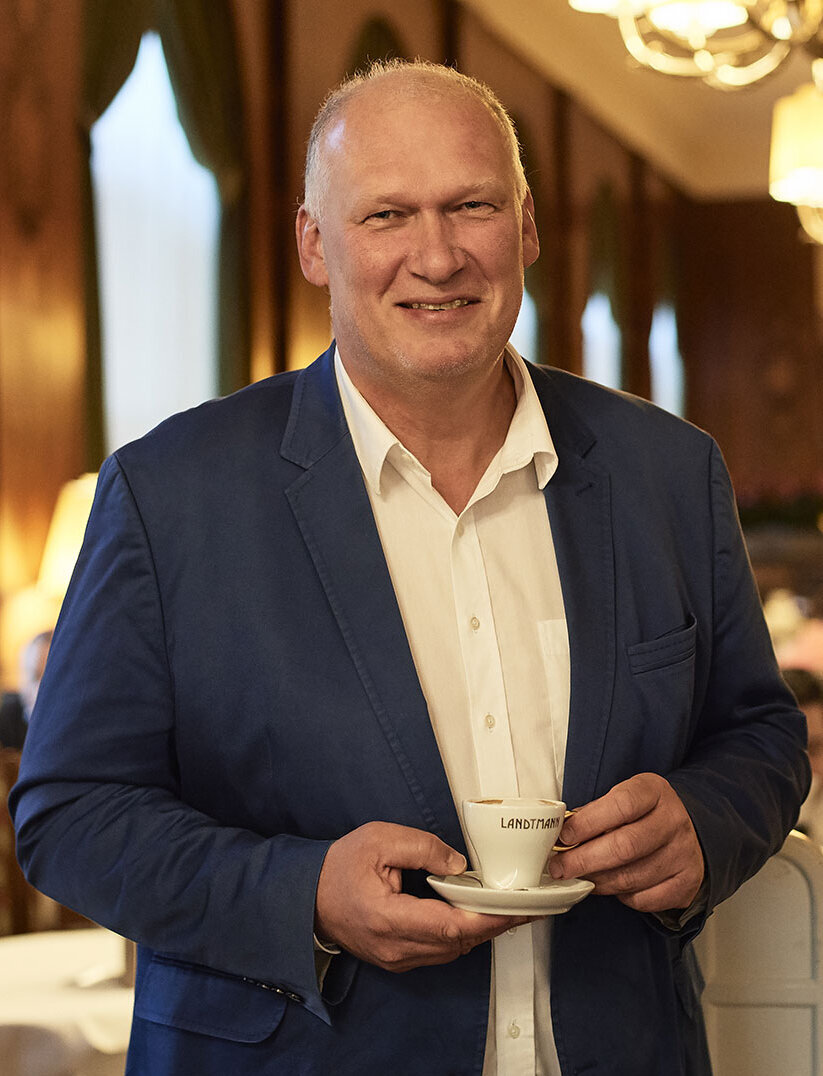
CAFÉ LANDTMANN IS A LIVING LEGEND AND VIENNA'S LIVING ROOM
Café Landtmann has been a Viennese institution since 1873. It is located in the salubrious company of the Court Theatre, Office of the Federal Chancellor, City Hall and the university – and it fits right in. The historical guest list is a who's who of famous faces. Sigmund Freud and Thomas Mann were regulars, Gary Cooper and Marlene Dietrich loved the coffee. And it is not just any coffee. Five premium roasts using three different methods are brought together to form a compendium of Viennese coffee. Even today, actors and politicians spend time here, rubbing shoulders with artists, businesspeople, tourists and students.
The atmosphere is warm and homely. It manages to be both classy and straightforward. Visitors here expect only the best – and Berndt Querfeld steps it up a notch even from there. Whether you enjoy food, coffee or wine – excellent quality is a given. The expert team in the kitchen uses top-quality food to make international and local dishes, combining traditional and seasonal foods. Not to mention Landtmann's fine patisserie, the Querfeld family's contribution to Vienna's traditional craft of confectionery.
95 full-time employees ensure everything runs smoothly. Running an establishment like this requires a feel for tradition, culture and different guests' expectations. Berndt Querfeld, his wife and family run nine coffee houses in Vienna and the famous Café Museum. That adds up to 350 employees working hard every day.
THESE HUGE HEADLINE NUMBERS CAN ONLY BE MAINTAINED IF PEOPLE AND MACHINES ARE BOTH RELIABLE
A ‘normal day’ here means up to 3,500 visitors. And that is in December, with no outdoor areas. That kind of feat is only possible with the utmost skill and a good routine. Even more so, remembering that coffee house culture is not just making good coffee, but serving it too. One coffee involves: a cup, a saucer, a sugar dish, the signature glass of water, a spoon and a silver tray. That is six items to wash! ‘We dirty a huge amount of crockery to make just one black coffee – and it all has to be washed,’ Mr Querfeld points out.
As a coffee house manager, he truly values high-quality warewashing technology, ‘Pot-wash employees protect us from an organisational apocalypse and good warewashing is the solution to keeping everything running smoothly. It is a mirror to the food service sector, even if it is not the main focus.’ Our warewashing technology has to deliver perfectly clean pots 100 % of the time. It can never stop. If, over time, a problem arises, we need a service team on hand – ‘Even on a Sunday at 9 pm. Just like MEIKO provides,’ says Mr Querfeld, who has been using the warewashing technology provider in Baden-Württemberg for over 15 years. He knows that there is a lot to consider when it comes to warewashing technology: energy, water and chemical consumption; working conditions, indoor climate. As a man true to his culture, though, one point is more important: ‘We need a trustworthy partner who lives by our values: reliability, quality, consistency and long-term planning.’ Viennese Coffee House Café Landtmann – captivating.
